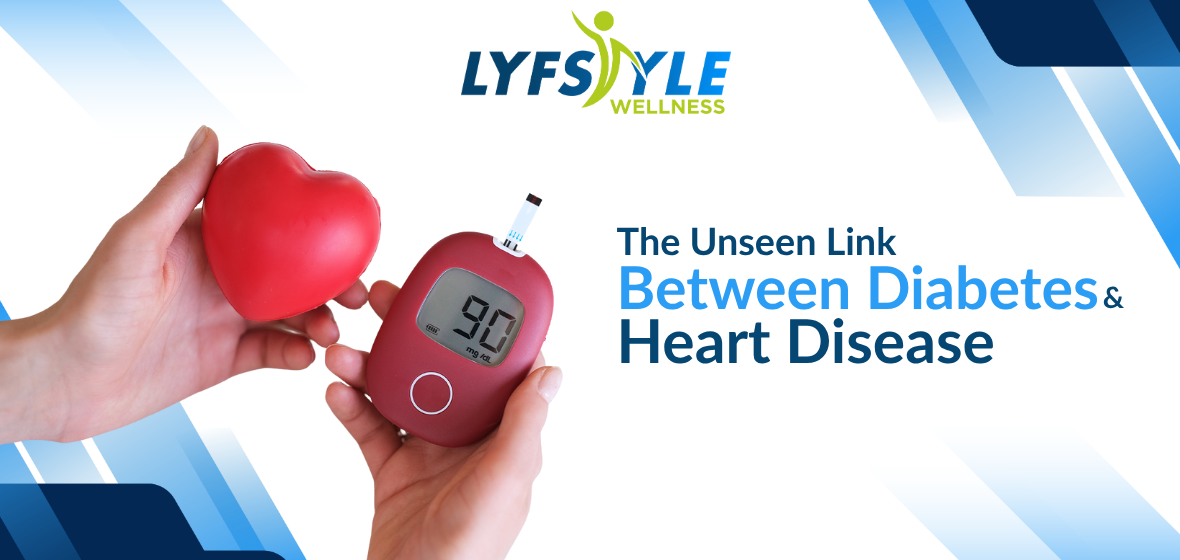
When we think of diabetes, we often picture blood sugar, insulin, and dietary changes. But there’s a much more dangerous complication lurking behind the scenes — and it affects your heart.
In fact, people with diabetes are 2 to 4 times more likely to develop heart disease or suffer a heart attack earlier than those without diabetes. Yet most diabetics in India remain unaware of this silent connection until it’s too late.
Why Diabetics Are at Higher Risk for Heart Disease
Diabetes doesn’t just raise blood sugar levels — it creates inflammation and damage in blood vessels, especially arteries that supply the heart.
Over time, this leads to:
- Hardening of arteries (atherosclerosis)
- High blood pressure
- Higher LDL (bad cholesterol) and lower HDL (good cholesterol)
- Increased clot formation
All these factors work together to strain the heart and increase the risk of:
- Heart attacks
- Strokes
- Coronary artery disease
- Congestive heart failure
It’s not just about how much sugar is in your blood — it’s about how sugar affects your heart, silently and steadily.
Early Signs You Should Never Ignore
If you’re diabetic, even mild symptoms could signal heart issues:
- Chest discomfort or tightness (even if brief)
- Shortness of breath during routine activities
- Fatigue, especially after meals or walks
- Irregular heartbeat or palpitations
- Swelling in legs or ankles
Diabetic heart symptoms are often atypical — you might not even feel classic chest pain. That’s why early screening is critical.
The Smart Way Forward: Prevent & Protect
Here’s what every diabetic must do to lower heart risk:
1. Get Regular Heart Check-Ups
Annual cardiac risk assessments, ECGs, and lipid profiles can detect early damage.
2. Explore EECP Therapy (Non-Surgical Heart Treatment)
EECP (Enhanced External Counterpulsation) is a USFDA-approved, non-invasive therapy that improves blood flow to the heart and reduces angina without surgery.
It’s especially beneficial for diabetics who cannot undergo bypass or angioplasty.
3. Lifestyle & Diet Coaching
- Eat heart-healthy and low-glycemic meals
- Walk 30 mins/day
- Control weight and stress levels
4. Monitor and Manage Your Sugar Levels
Even small sugar spikes over time can damage blood vessels. Target an HbA1c below 7% with medical guidance.
5. Enroll in a Cardiac Rehabilitation Program
If you’ve already faced heart issues, structured rehab with a clinical team can help you recover strength, prevent further damage, and regain quality of life.
Real Wellness Is Preventive — Not Reactive
Most diabetic patients only address their sugar levels, forgetting that heart damage begins early and silently. By the time symptoms appear, it’s often late.
At our clinic, we help you:
- Detect heart risk early
- Manage diabetes holistically
- Avoid surgery through EECP & lifestyle reversal
Live stronger and longer — with confidence
Take Charge of Your Health Today
If you’re diabetic or pre-diabetic, don’t wait for warning signs. Book a preventive heart screening or EECP consultation now.
Your heart deserves the same attention as your sugar levels — because life is more than just numbers.
